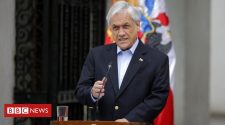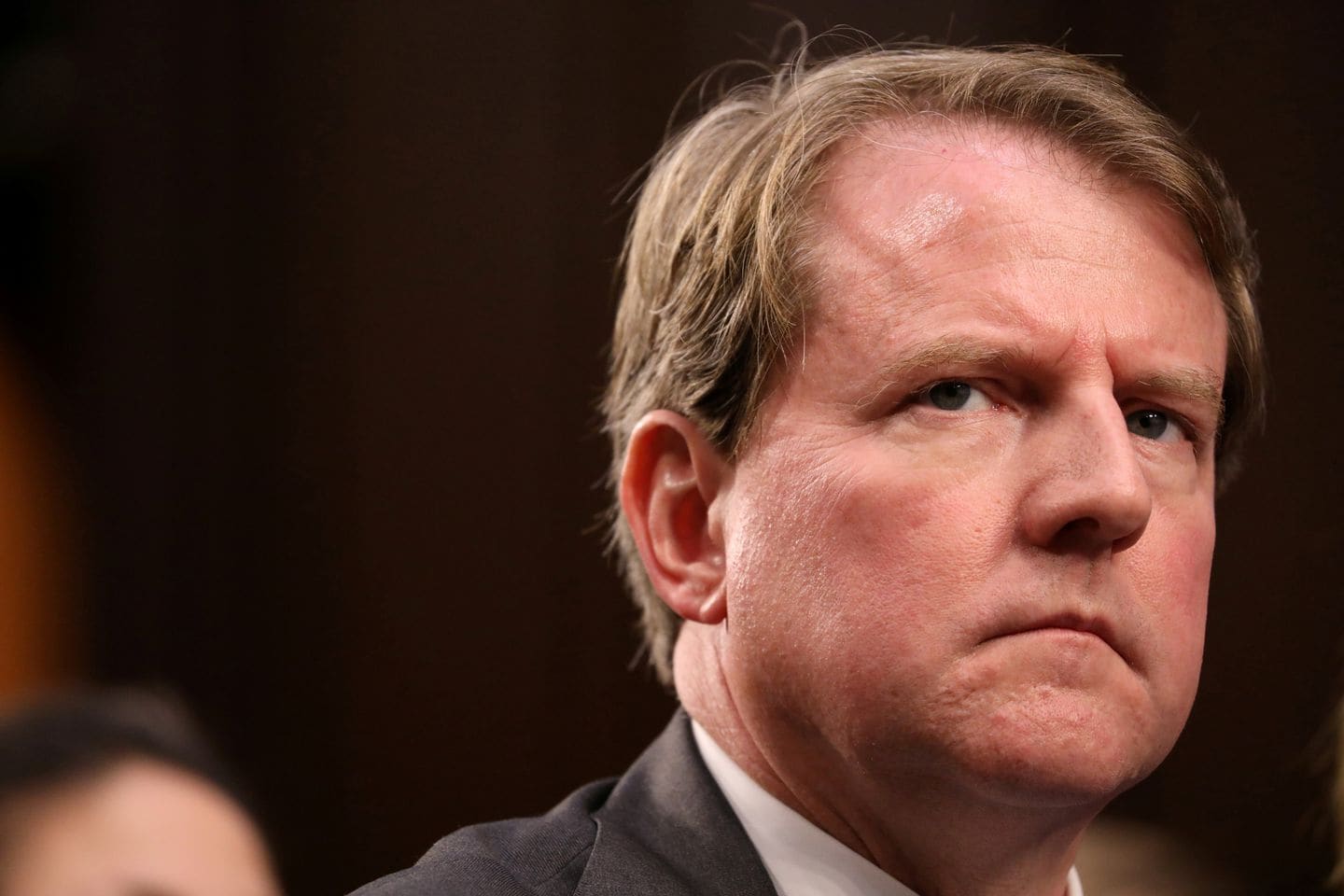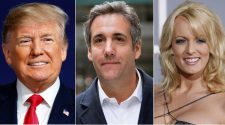In a 118-page decision, U.S. District Judge Ketanji Brown Jackson of Washington, found no basis for a White House claim that the former counsel is “absolutely immune from compelled congressional testimony,” likely setting the stage for a historic separation-of-powers confrontation between the government’s executive and legislative branches.
The House Judiciary Committee went to court in August to enforce its subpoena for McGahn, whom lawmakers consider the “most important” witness in whether Trump obstructed justice in special counsel Robert S. Mueller III’s investigation of Russian interference in the 2016 U.S. election.
President Trump blocked McGahn’s appearance, saying McGahn had cooperated with Mueller’s probe, was a key presidential adviser and could not be forced to answer questions or turn over documents. Jackson disagreed, ruling that if McGahn wants to refuse to testify, such as by invoking executive privilege, he must do so in person and question by question.
The Justice Department’s claim to “unreviewable absolute testimonial immunity,” Jackson wrote, “is baseless, and as such, cannot be sustained.”
Jackson ordered McGahn to appear before the House committee said the conclusion she reached was “inescapable” because a subpoena demand is part of the legal system — not the political process — and “per the Constitution, no one is above the law.”
“However busy or essential a presidential aide might be, and whatever their proximity to sensitive domestic and national-security projects, the President does not have the power to excuse him or her from taking an action that the law requires,” Jackson wrote. “Fifty years of say so within the Executive branch does not change that fundamental truth.”
The House lawsuit against McGahn was the first filed by Democrats to force a witness to testify since they retook control last year. The Justice Department, which is representing McGahn, said it will appeal Jackson’s ruling.
Jackson’s decision had been highly anticipated, with major implications for other high-value witnesses in the Democrats’ ongoing impeachment investigation, including former national security adviser John Bolton and Bolton’s deputy Charles Kupperman.
Since the House lawsuit began, a complaint this summer by an intelligence community whistleblower triggered a formal congressional impeachment inquiry into Trump’s request that Ukraine investigate former vice president Joe Biden — a potential 2020 political rival — and his son Hunter Biden.
The House Intelligence Committee recently held public hearings as part of the inquiry, centered on a July 25 call from Trump allegedly pressuring Ukraine’s leader to investigate Biden and his son.
Democrats are debating whether articles of impeachment should include obstruction of justice allegations detailed in the by Mueller, and McGahn could prove a crucial witness.
“Given that the House’s impeachment inquiry is proceeding rapidly, the Committee has a finite window of time to effectively obtain and consider McGahn’s testimony,” House General Counsel Douglas Letter wrote last week in asking the judge to move quickly.
“The Judiciary Committee anticipates holding hearings after [the] public hearings have concluded and would aim to obtain Mr. McGahn’s testimony at that time,” Letter wrote.
The House Judiciary Committee is continuing to investigate obstruction of justice allegations detailed in Mueller’s 448-page report, which mentioned McGahn’s statements more than 160 times.
For instance, on June 17, 2017, three days after The Washington Post reported the special counsel was investigating whether the president had obstructed justice and a month after Mueller was appointed, Trump called McGahn at home twice and directed him to fire Mueller over alleged conflicts of interest, the House’s lawsuit stated, citing Mueller’s report.
Trump’s July call to Ukraine came one day after Mueller testified to Congress about his probe’s conclusions.
William A. Burck, McGahn’s attorney, said, “Don McGahn will comply with Judge Jackson’s decision unless it is stayed pending appeal. DOJ is handling this case, so you will need to ask them whether they intend to seek a stay.”
Burck has said McGahn does not believe he witnessed any violation of law, and that the president instructed him to cooperate fully with Mueller but not to testify without agreement between the White House and committee.
In a statement, House Judiciary Committee Chairman Jerrold Nadler (D-NY) said he was pleased the court “recognized that the Trump Administration has no grounds to withhold critical witness testimony from the House during its impeachment inquiry.”
Nadler added, “Now that the court has ruled, I expect him to follow his legal obligations and promptly appear before the Committee.”
The ruling does not mean that McGahn will have to immediately appear before Congress under his April 22 subpoena. The Justice Department can ask the judge to put her ruling on hold, and if she declines, ask the appeals court to temporarily stay the opinion.
However, Jonathan Shaub, a former attorney in the Justice Department’s Office of Legal Counsel, said a ruling against McGahn will “provide cover for other witnesses, especially former employees who are inclined to testify but feel compelled by the White House’s direction not to.”
Even if Congress prevails in the courts, McGahn could appear before the committee but still decline to answer certain questions. McGahn could assert a separate claim of executive privilege and refuse to respond to specific questions about conversations with the president, for instance, unless he is authorized to do so by the White House.
An appeal and binding circuit court ruling could set up a historic Supreme Court test over the constitution’s checks-and-balances, pitting Congress’s impeachment and oversight authority against the powers of the presidency.
Congressional subpoenas fights normally are settled through compromise between branches of the government to avoid the risk that either side suffers a definitive constitutional defeat.
That is what occurred in 2008, when the White House and Congress reached an accommodation to avert a binding appeals court ruling after U.S. District John D. Bates — a George W. Bush appointee, former presiding judge of the Foreign Intelligence Surveillance Court and deputy independent counsel of the Whitewater probe into president Bill Clinton — rejected Bush’s bid to block testimony of his former counsel Harriet D. Miers to a House Judiciary Committee on the controversial firings of U.S. attorneys.
The Bush administration’s claim of “absolute immunity from compelled congressional process for senior presidential aides is without any support in the case law,” Bates wrote. The parties eventually agreed on questioning behind closed doors and release of a public transcript, mooting the case.
But the Justice Department’s Office of Legal Counsel has argued that Bates’s decision is mistaken.
House Democrats were closely watching the outcome of McGahn’s case because of how it might affect other impeachment-related witnesses. The House intelligence committee-led inquiry seeks testimony from Bolton and had issued — but then withdrew — a subpoena to Kupperman, Bolton’s deputy, while courts addressed the White House’s blanket immunity claim.
In McGahn’s case, at a hearing Oct. 31 before Jackson, Assistant Attorney General James Burnham argued that the House “as a general proposition” can never sue the executive branch, nor compel top White House aides to appear.
House general counsel Douglas N. Letter told the court that “the Judiciary Committee cannot fulfill its constitutional investigative, oversight and legislative responsibilities — including its consideration of whether to recommend articles of impeachment — without hearing from [McGahn].”
Rosalind S. Helderman contributed to this report

















Federal Judge Reggie Walton Condemned Trump’s Comments About Judge Juan Merchan On CNN